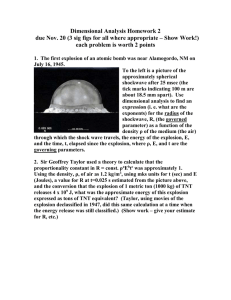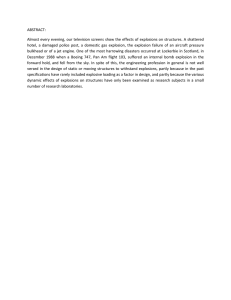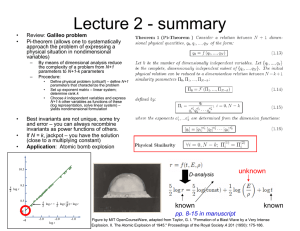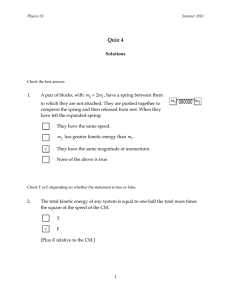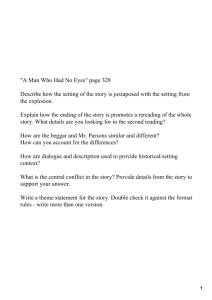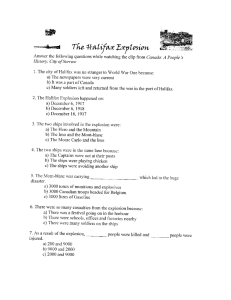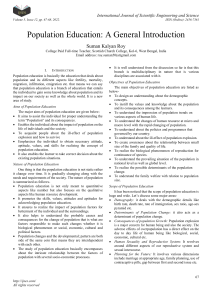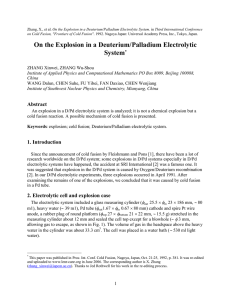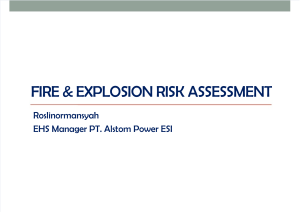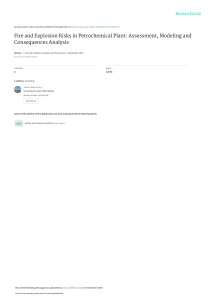Assignment #8 PHYSICS 8.284 11:04am Wednesday 19 April 2006
advertisement
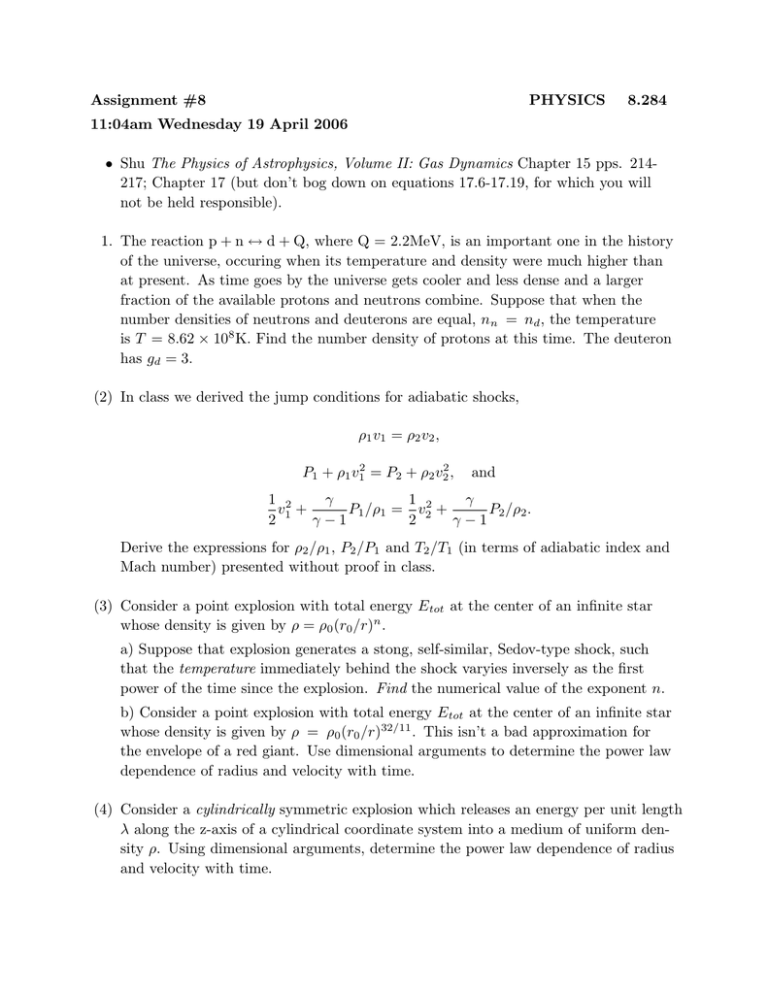
Assignment #8 PHYSICS 8.284 11:04am Wednesday 19 April 2006 • Shu The Physics of Astrophysics, Volume II: Gas Dynamics Chapter 15 pps. 214­ 217; Chapter 17 (but don’t bog down on equations 17.6-17.19, for which you will not be held responsible). 1. The reaction p + n � d + Q, where Q = 2.2MeV, is an important one in the history of the universe, occuring when its temperature and density were much higher than at present. As time goes by the universe gets cooler and less dense and a larger fraction of the available protons and neutrons combine. Suppose that when the number densities of neutrons and deuterons are equal, nn = nd , the temperature is T = 8.62 × 108 K. Find the number density of protons at this time. The deuteron has gd = 3. (2) In class we derived the jump conditions for adiabatic shocks, �1 v 1 = � 2 v 2 , P1 + �1 v12 = P2 + �2 v22 , and � 1 � 1 2 v1 + P1 /�1 = v22 + P2 /�2 . 2 �−1 2 �−1 Derive the expressions for �2 /�1 , P2 /P1 and T2 /T1 (in terms of adiabatic index and Mach number) presented without proof in class. (3) Consider a point explosion with total energy Etot at the center of an infinite star whose density is given by � = �0 (r0 /r)n . a) Suppose that explosion generates a stong, self-similar, Sedov-type shock, such that the temperature immediately behind the shock varyies inversely as the first power of the time since the explosion. Find the numerical value of the exponent n. b) Consider a point explosion with total energy Etot at the center of an infinite star whose density is given by � = �0 (r0 /r)32/11 . This isn’t a bad approximation for the envelope of a red giant. Use dimensional arguments to determine the power law dependence of radius and velocity with time. (4) Consider a cylindrically symmetric explosion which releases an energy per unit length � along the z-axis of a cylindrical coordinate system into a medium of uniform den­ sity �. Using dimensional arguments, determine the power law dependence of radius and velocity with time.
